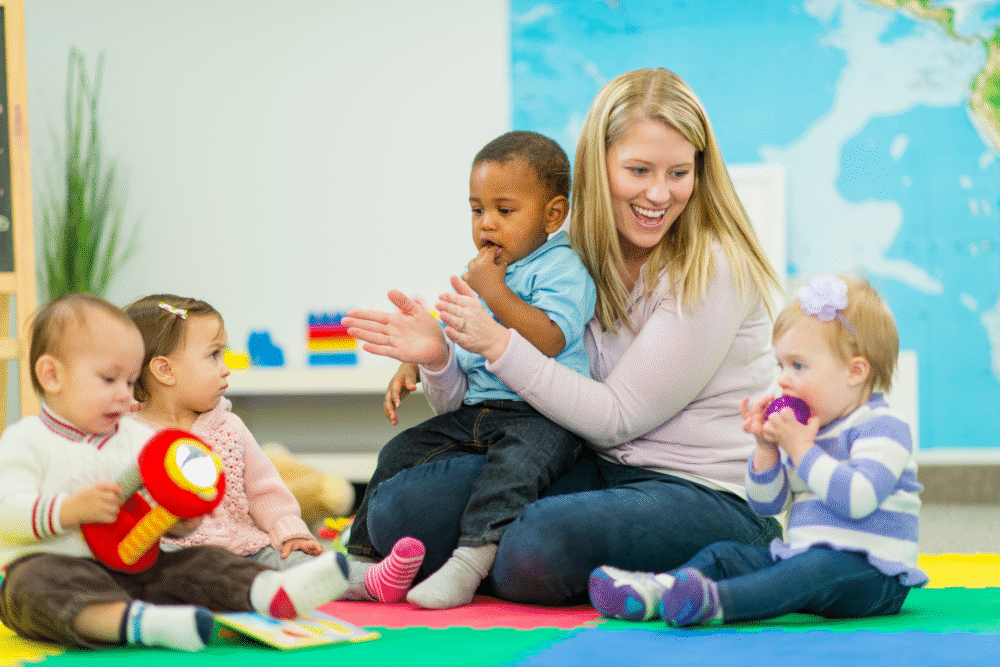The real tension isn’t in the toddler tantrums—it’s between the grown-ups.

Millennials are trying to raise kids with intention, flexibility, and empathy—but they’re hitting walls inside their own families. It’s not just generational differences causing friction. It’s differing values, power struggles, and parenting ideals clashing in real time. What was once subtle eye-rolling at the playground has turned into full-blown family drama.
These are the parenting battles millennial families are fighting—and the quiet emotional toll they’re taking behind the Instagram smiles and wooden toy shelves.
1. Screen time is the hill everyone keeps dying on.

One parent wants no screens before age five. The other is fine with an hour of cartoons while they finish work. Grandparents sneak iPads into car rides. Everyone thinks their version of screen management is “reasonable,” which means everyone’s annoyed. Screen time used to be a non-issue—TV was just part of life. Now, it’s a battleground loaded with guilt, judgment, and side comments about “back in my day.” Millennial parents aren’t anti-technology, but they’re exhausted trying to balance educational apps with overstimulation guilt. And when family members override those boundaries? It turns into an all-out turf war.
2. Gentle parenting is getting labeled as weakness.

Millennial parents are leaning hard into connection-based discipline—less yelling, more validation, lots of deep breaths and emotional coaching. But older family members often see it as coddling. The moment a child has a meltdown, someone’s whispering that “a good spanking would solve that.” It’s not just a clash in strategy—it’s a deep divide in worldview. Gentle parenting requires patience, and not everyone outside the nuclear unit buys into it. Millennials end up defending their approach at every family gathering while trying not to snap. It’s hard to model emotional regulation when you’re being silently judged for having any emotions at all.
3. Division of labor is more equal—but not always more peaceful.

Most millennial couples want a 50/50 split, or at least something close. But equal parenting doesn’t automatically mean harmonious parenting. Who tracks school emails? Who books dentist appointments? Who’s really doing the “invisible” work? Even well-meaning partners can end up in recurring fights about whose turn it is to wake up early or who knows their kid’s shoe size. The stress builds when both parents are trying to carry everything but still feel like they’re failing. Resentment simmers under chore charts and shared calendars. Modern co-parenting is fairer—but often ten times more complex.
4. Grandparent boundaries are a constant minefield.

Millennial parents are more boundary-focused than their predecessors. They have clear ideas about naps, sugar limits, sleep training, and social media posts. But enforcing those boundaries with grandparents—especially ones who see their involvement as a sacred right—is another story. A casual cookie turns into a conflict. Posting a photo without permission sparks a text thread. And when grandparents feel rejected or policed, guilt comes pouring in. Millennials are stuck trying to honor their parenting choices while preserving peace with the people who raised them. It’s delicate, emotional, and often ends with someone muting the family group chat.
5. Daycare versus stay-at-home is still a deeply loaded choice.

Millennials have more options than ever—and yet every choice feels scrutinized. Parents who send kids to daycare are judged for not “being there.” Stay-at-home parents are labeled privileged or regressive. Sometimes the judgment comes from outside, sometimes from within the couple. It’s not just a logistical decision—it’s an identity one. One partner might resent the financial pressure. The other might feel stuck in a role they didn’t fully choose. The emotional labor of justifying your family’s setup, again and again, wears people down. What should be a personal choice becomes a pressure cooker no matter what side you’re on.
6. Kids’ diets are starting more fights than politics.

Organic, vegan, dairy-free, sugar-limited—Millennial parents are navigating an explosion of food philosophies. One parent might be all-in on gut health. The other just wants their kid to eat something besides Goldfish. Add in grandparents who offer candy at every visit and babysitters who don’t check labels, and it’s chaos. What goes into a lunchbox becomes a recurring point of tension. Food isn’t just nutrition anymore—it’s wrapped in fear, control, and cultural identity. When someone deviates from “the plan,” it feels like a betrayal. And arguing over applesauce brands quickly becomes something much bigger.
7. Social media sharing is triggering unexpected conflict.

One parent wants to post every milestone. The other believes in total digital privacy. Throw in grandparents who share bath time pics and friends who tag your toddler without asking, and suddenly your family’s image is out of your hands. Millennial parents are navigating complex questions around consent and exposure in a world that never logs off. What should be a simple conversation about a photo turns into an existential debate about identity and safety. Even couples who agree in theory often clash in practice. And the comment section? It only adds fuel to the fire.
